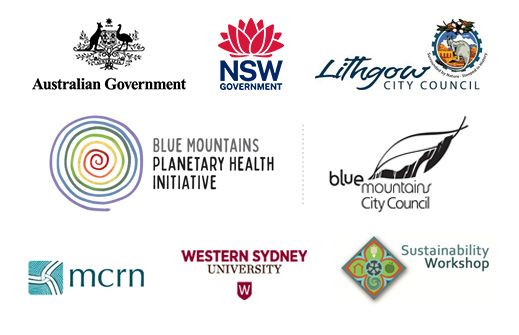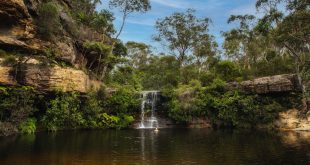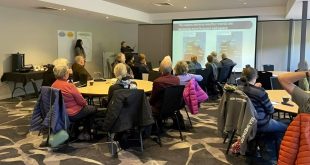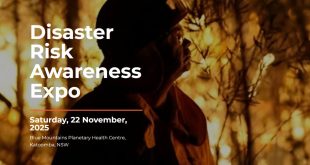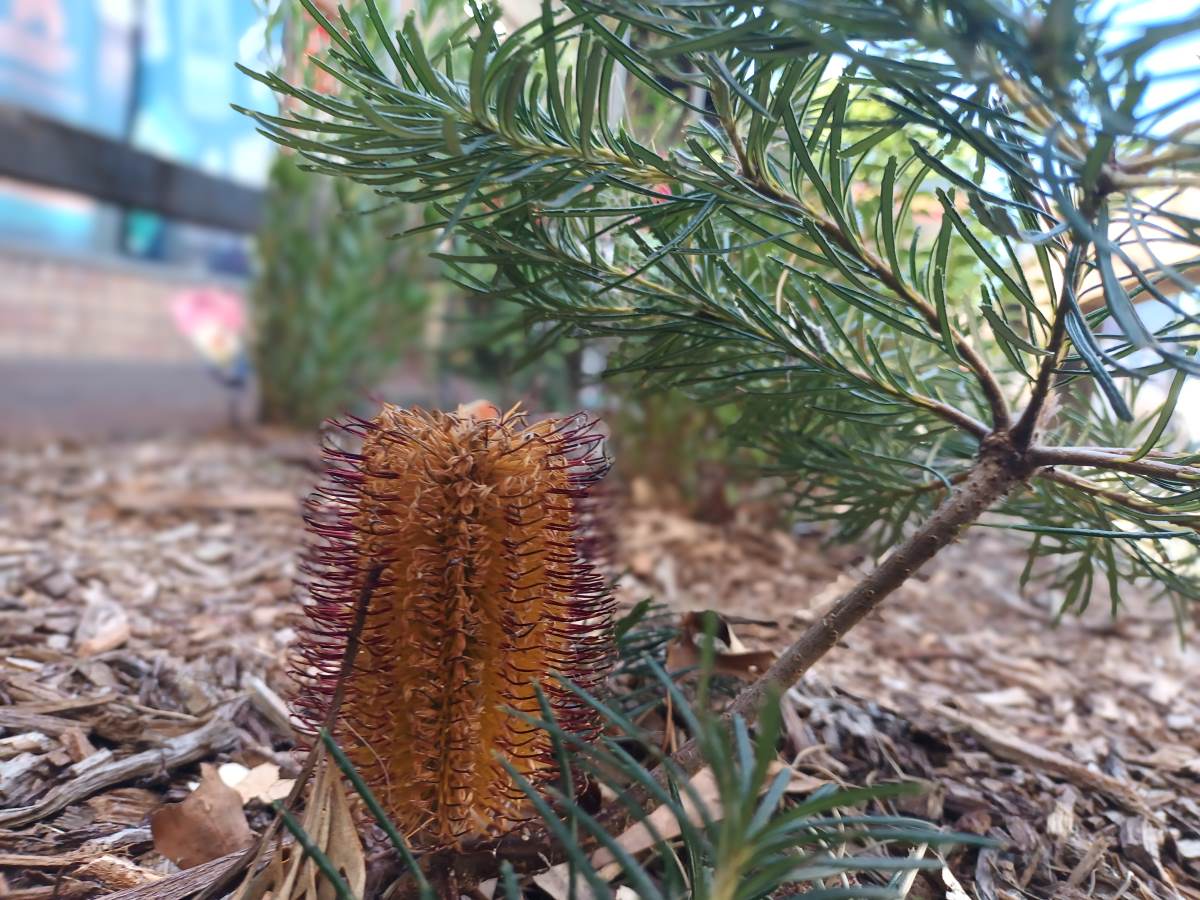
Story and photos by Gabiann Marin
Along Macquarie Road in Springwood, many businesses are taking action by making quiet, and often surprising decisions which benefit and promote sustainability in our local area, and across the world.
Key Points:
- Even businesses not primarily focussed on environmental or social concerns, are demonstrating how key sustainability practices now inform their everyday business decisions.
- Local small businesses on the main shopping street are well placed to inspire and lead cultural change in the community.
- Through recognising and supporting the small as well as the large cultural shifts in the business community we encourage continuous and profound change towards a sustainable future for all.
Marcio stands behind the counter of his bottle shop. He’s a big man with a kind energy and a genuine desire to help. It makes him a good salesman, but possibly an even better human being. It’s this desire that makes him initially a little taken back at my question about sustainability.
“Sustainability?” he frowns, “I’m not sure what I do around that.”
Then his brow clears and his face breaks into a smile. “Could you mean the native plant garden?”
Beyond the door of the cellars is a small nature strip. Marcio speaks about how it was when he first took over management of the store.
“Dusty, nothing but dirt and weeds, and rubbish, you would be amazed what was there: nappies, broken glass, it was awful.” – Marcio, Chambers Cellars
With the help and blessing of Blue Mountains City Council Marcio worked hard to transform the space.
“I bought all the native plants myself, from the nursery down the street. Then I cleared the area and planted them.”
It was a small act, one that Marcio himself downplays, but it does more than just beautify the shopfront, it provides a micro ecosystem for the native plants, insects and birds to thrive.
“The animals and plants were here long before us,” Marcio shrugs. “I think it’s only right we do whatever we can to help them survive.”
Marcio’s garden of banksia and wattle is just one of the many small, surprising and thoughtful gestures towards sustainability that you can find as you travel down the main shopping road in Springwood.
Macquarie Road may seem unremarkable, just an average local main street. Fringed on both sides by shops, cafes, and small parks, it’s busy, but not hectic, snaking its way under the rail station bridge, up past the post office and dipping down alongside the Community Hub: which houses the local neighbourhood centre, library and theatre, before it twists through a large roundabout and winds past small residential buildings. It skirts alongside Springwood Public School, then twists gently back onto the Great Western Highway, which pulses in parallel up the mountainside.
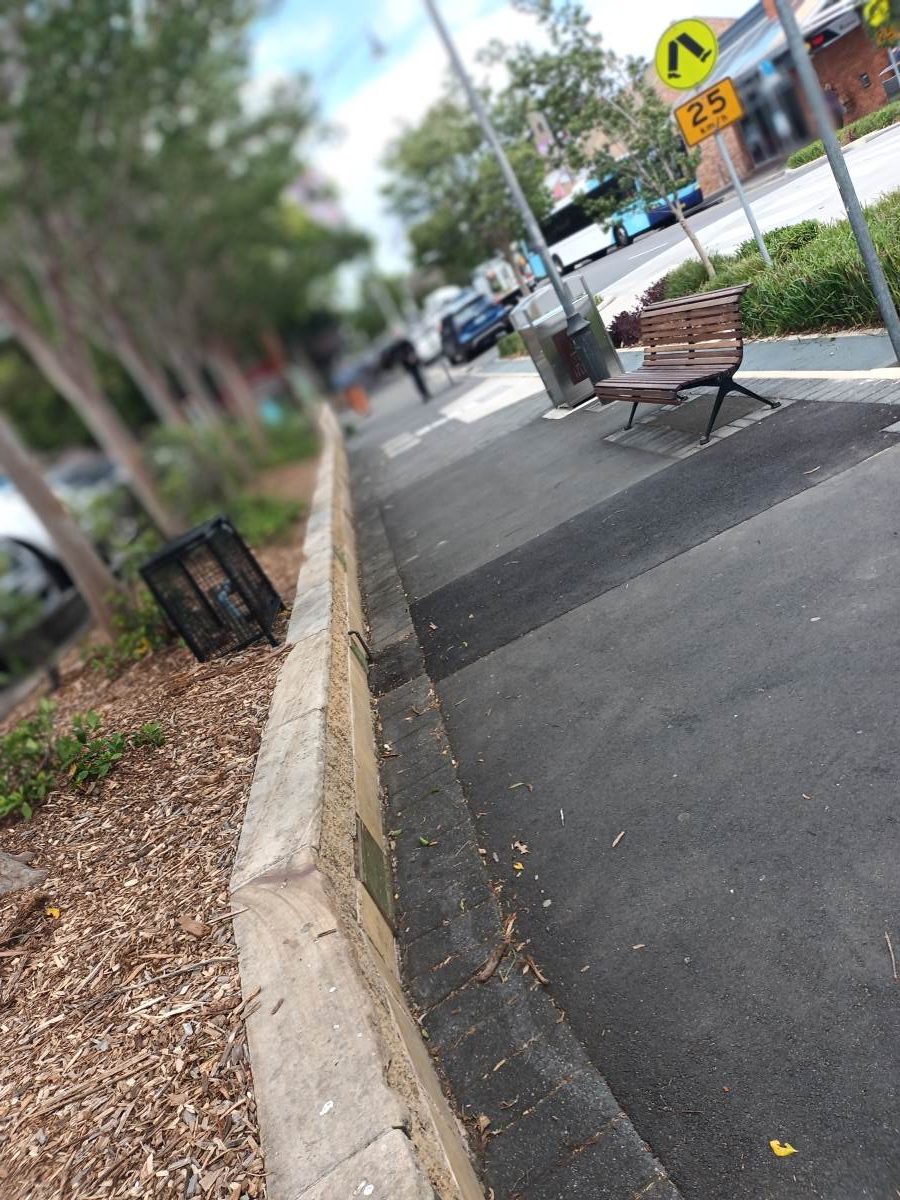
Macquarie Road, Springwood, A typical Mountains main street encouraging sustainability.
Like many main streets in Australia it has seen a rise in proudly sustainable businesses, and now boasts the only fully vegan café in the mountains: Café One Two One. Its menu is entirely created from local and organic ingredients, most of which are also available to buy directly from the store.
There are also a number of sustainable clothing boutiques, like the newly opened Figgy Boutique: hosting racks of beautifully made designs created from ethically sourced and recycled materials, many of which would otherwise have been dumped into landfill.
The Salvation Army store, down the eastern end of the road, offers a different kind of sustainable shopping option. Recycled and pre-loved fashions, furniture and homewares are offered for sale, often at bargain basement prices, made even more enticing when coupled with generous senior citizen discounts on designated days.
The dedication to sustainability and community is present and overt in every choice made within their premises. Yet there are also surprising and thoughtful efforts towards conservation and ecological sustainability which, like Marcio’s understated native garden, can often go unnoticed or unremarked behind the many other shopfronts and businesses that line the street.
“I try not to use any plastic at all,” Lesley-Anne says, as she carefully arranges her locally sourced bouquet in the front of her floristry window, “but if I do have to use any, I make sure it is recycled and recyclable.”
It’s impressive how much thought she has put into the environmental impact of her business, every decision carefully evaluated, not just for its economic but also its ecological effect.
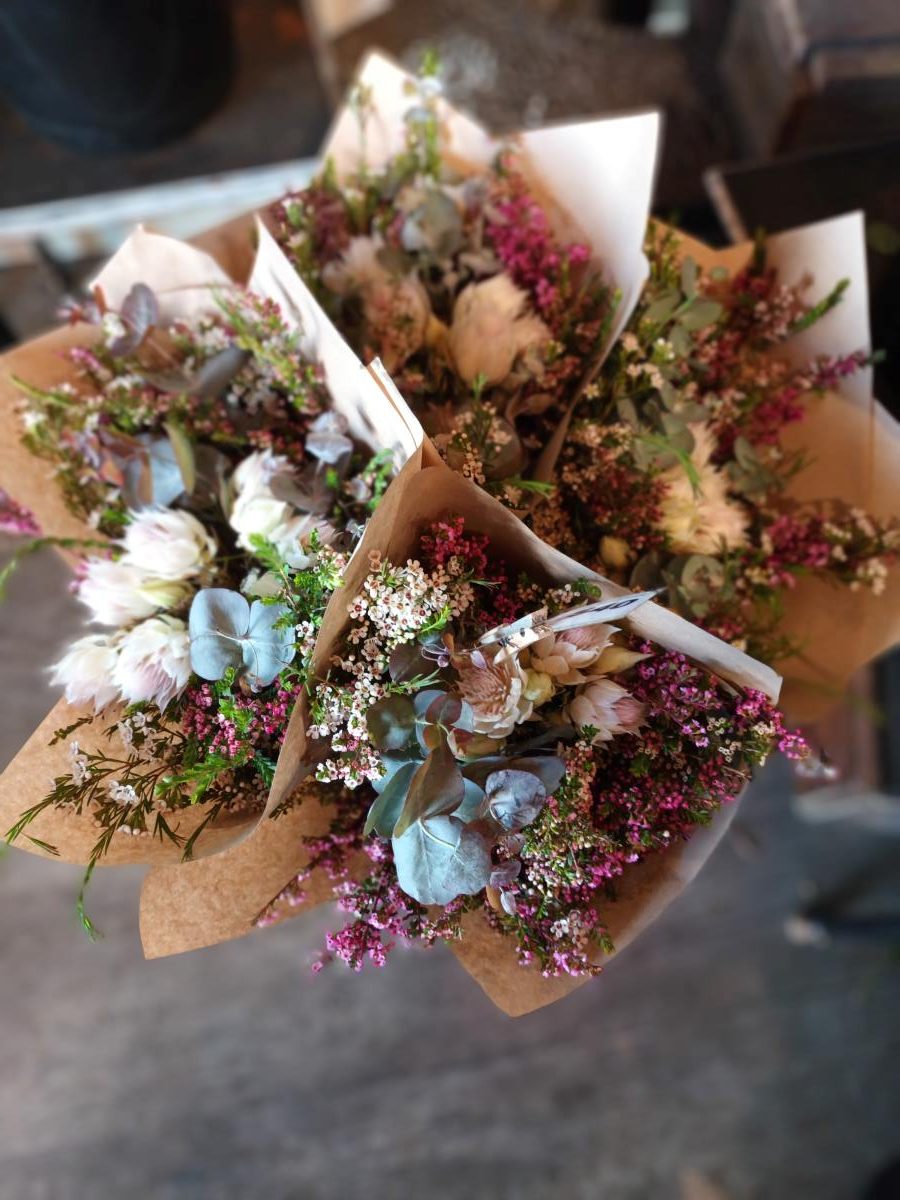
Springwood Florist has a focus on native and locally sourced flowers, biodegradable packaging and dedicated green waste management.
“90% of my waste is green waste,” Lesley-Anne remarks, snipping the stems off a handful of native flowers and wrapping them in her elegantly simple biodegradable wrapping paper, “so my biggest concern was thinking about how I could dispose of that waste in the best possible way.”
She enquired with her waste management company and was frustrated to find that they simply tossed her flower stems and discarded petals into general landfill, completely missing the opportunity to turn it into compost and give back to the earth.
It took a bit of research, but after a few months Lesley-Anne finally found Managed Waste Service, an unremarkable name for a remarkable company which specialises in ensuring green and organic waste is recycled into rich compost at their certified composting facility. They also recycle and compost coffee grinds and have recently undertaken a trial with one of the bigger franchise café and coffee houses to re-direct their coffee grinds from landfill to compost.
Allison Kyriakakis started the waste management business with her husband a few years ago to stop the overuse of landfill for biodegradable materials.
“Sustainability and the circular economy are at the forefront of everything we do,” Allison explains over the phone. “We have young children and we want to leave a healthier planet for them to inherit. One really effective way to do this is by providing local and sustainable waste solutions, minimising landfill and creating beautiful rich compost to help grow the plants and nourish the animals we all depend on.”
It’s a simple philosophy, and one that convinced Lesley-Anne to sign up her floristry business with them. “It’s something small, but I think it makes a difference,” Lesley-Anne remarks.
It certainly does. These seemingly small choices can make huge impacts, and, walking along Macquarie Road, it can be eye-opening to realise how many businesses here have made similarly small decisions which benefit our environment, our community and their own bottom line. They may seem insignificant on their own, but each and every one of those decisions adds up to profound change and real community benefit, even if the business owners themselves aren’t always aware of it.
“I don’t think we do much in the way of environmental awareness,” Hess from Blue Mountains Computer Repairs said, scratching his head.
“What about all those computers we repair and give away,” a voice called out from behind him as one of his staff popped out of the back office.
Hess nodded, “Oh yeah,” he said, “we do that.”
Not only do Hess and his workers recycle and recondition old computers and accessories, they also give some away free to charities who redistribute them to underprivileged kids at Christmas each year.
“I don’t think about it as sustainability,” he said thoughtfully, “just as a good thing to do.”
Yet as he thinks about it you can see him start to realise that maybe these two things are really one and the same.
The local art supply store, a seeming sea of plastic and packaging as you enter, has started to supply a range of eco-friendly products made of timber, sustainable materials and biodegradable packaging, and a few steps further down the street, the row of takeaway food vendors have quietly shifted to recycled, biodegradable or sustainable packaging and cutlery.
Zeki, the owner/manager of the local Kebab store has gone a step further, ensuring that his cooking oil is collected and recycled for bio-fuel, giving it an important secondary purpose beyond ensuring his chips are fried to a crispy golden brown.
Businesses like this may be making these changes because of economics: it is certainly cheaper and fits in with some customers’ expectations, but it is also undeniable that there is a certain sense of pride when managers and owners realise that their small act is actually part of a much bigger and profound benefit, one that is being supported in different ways by a range of small retail spaces across the country. And as much as their modest responses might make it seem like these are simply non-emotional business decisions, once the subject is broached, stories of conscious and quite careful decision-making are quickly revealed.
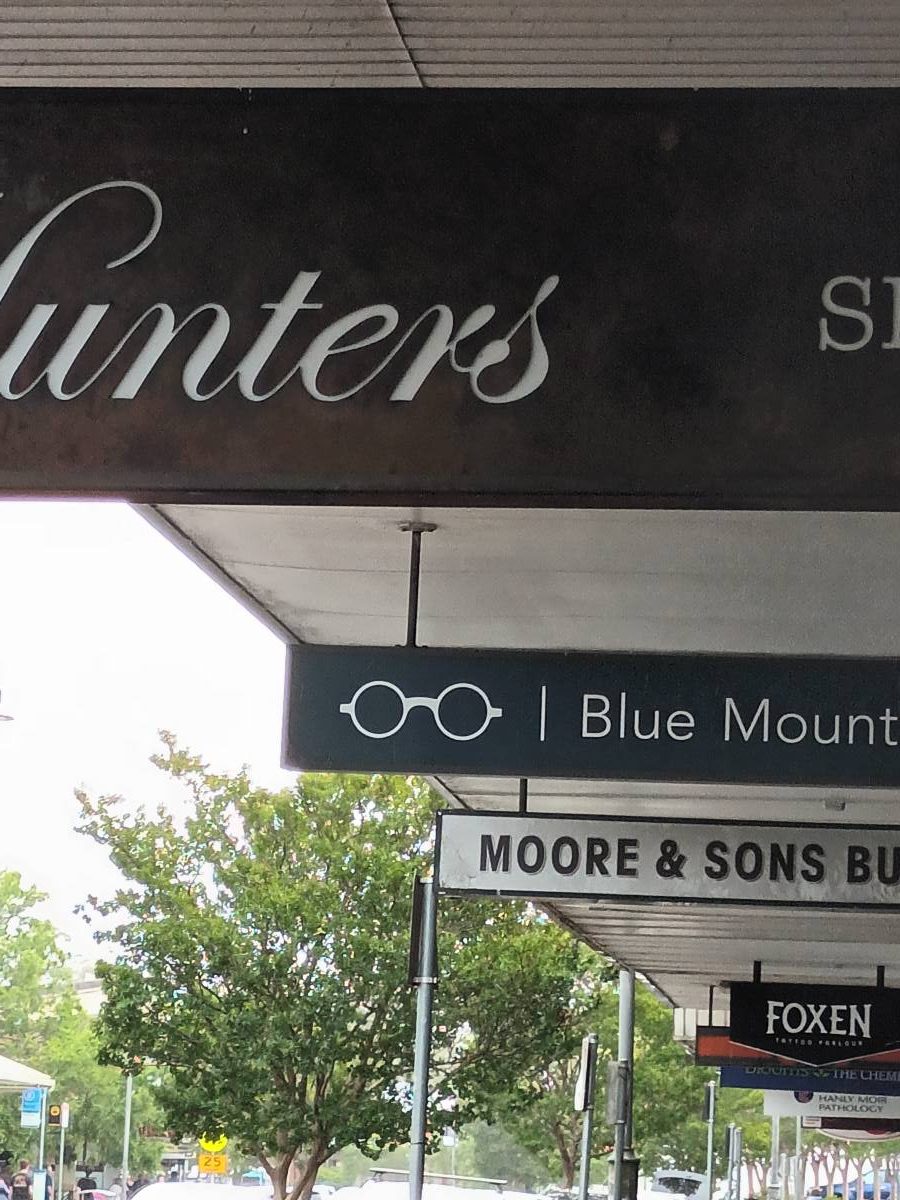
Businesses along Macquarie Road, Springwood are contributing more than many of them realise to sustainability in their neighbourhoods.
“These eggs have a great story,” Michael Moore says, pointing to the stack of egg cartons placed on the front counter of his butcher’s shop. “The guy who supplies them lets his chickens roam around his whole property, and he keeps them safely secured in caravans overnight, moving them to new parts of his property each day. Totally free range. A local guy, he lives up the top of the mountains.”
What’s great about this story is not just the quirky details, but that Michael has cared enough to learn about the ethos of his supplier and the welfare of his animals. Michael might shrug and say he “doesn’t do much” in regards to sustainability, but he has clearly taken an active interest in where the food he sells comes from, and has made consistent and conscious decisions to make the most sustainable and ethical decisions available to him: from stocking these free-range eggs to ensuring all of his meat products are free range and grass fed, with as much sourced locally as possible.
Story after story of sustainable choices are revealed as I move along Macquarie Road, chatting to everyone from the podiatrist to the tattooist. Many of the best stories and conversations come, perhaps unsurprisingly, from those who initially didn’t think they were doing anything remarkable, or who wanted to do more but felt slightly hamstrung by regulations and legislation around hygiene and safety. The latter are often the most delighted to discover that they are contributing more than they might realise.
Monty, the cheery receptionist at Foxen Tattoo, lights up as he remembers that they have managed to source some biodegradable packaging for their one-use ink cannisters. In a business that is legally required to use disposal needles, and hygienically plastic-wrapped inks, it is a place where they can make a difference.
Phillip Smith, the podiatrist at Birdwood Podiatry had a similar dilemma. “In health care we can’t recycle much of what we use, there is a lot of one-use plastic we simply can’t avoid,” he says sadly. “But I am always thinking about what I can do to reduce my impact.”
He thinks about it for a second. “You know one thing I do? I recommend my clients use bamboo socks. They’re a pretty good choice environmentally and they are much better for foot health.” He looks pleased that he has discovered one way that he does help the environment within his work.
Like Phillip, many of us want to do the right thing for our planet, and sometimes it just takes a conversation to realise what we are already doing to contribute to sustainability in our area – and where we could add to what we already do.
An unusual and clever sustainability practice is one quietly undertaken at the local family-owned shoe shop.
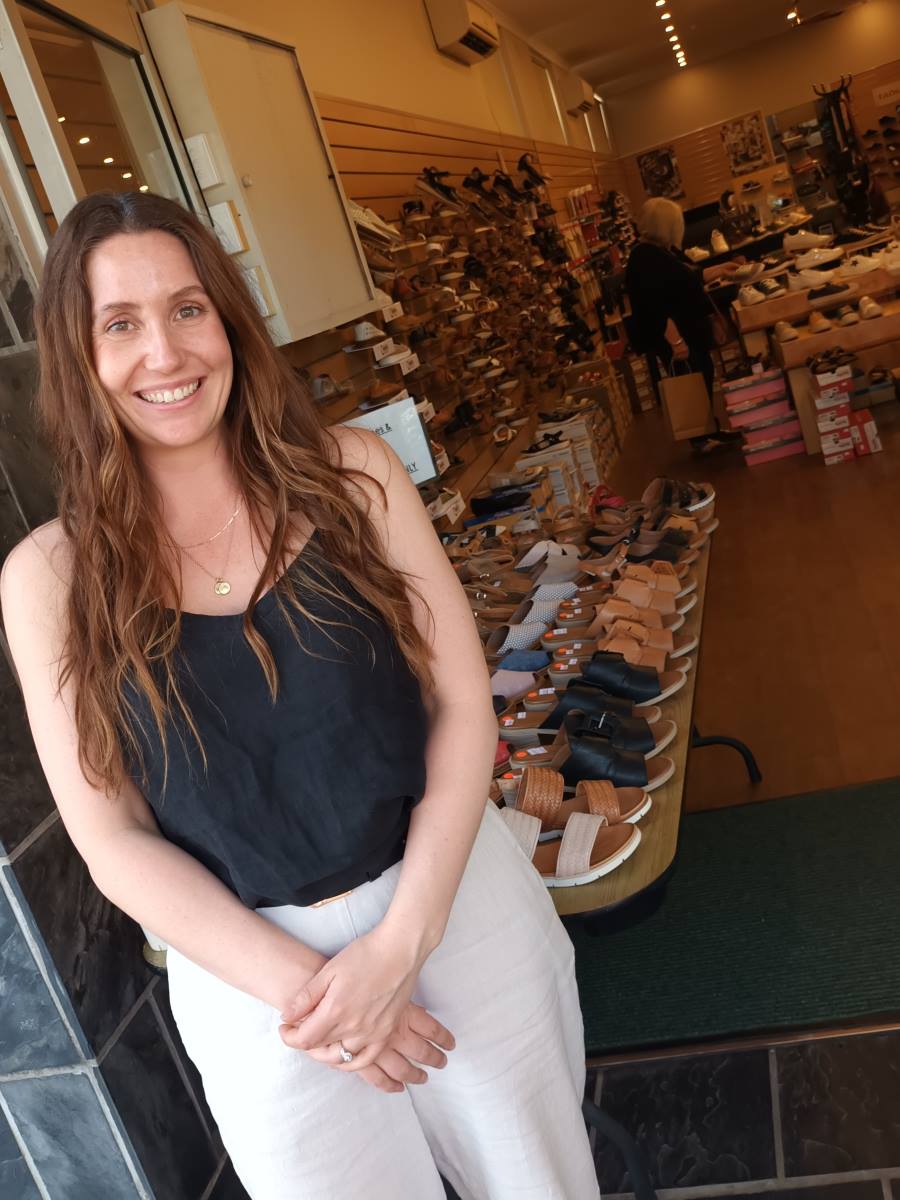
Chelsea, Manager of Hunter’s Shoes, who donate their shoe boxes to a local charity which provides care packages for underprivileged children overseas.
“A woman called Helen comes in once every few months,” Chelsea, the manager of Hunter’s Shoe Store recalls. “We give her all of our empty shoe boxes and she takes them away. She’s been doing it for a few years.”
It’s an odd story – what could someone want with so many old shoe boxes?
“She uses them to pack charitable and educational goods which are sent to children overseas.” Chelsea explains.
A brilliant idea, which saves the charity a lot of money in packing costs, prevents additional, perhaps less environmentally sustainable, packing materials ending up in landfill overseas and provides the kids with perfectly sized storage boxes to keep their school supplies and other items the charity provides. It’s such an elegant and beautiful solution for recycling the cardboard shoe boxes, and one which cleverly utilises and creates a circular economy that provides not just local, but global benefits. Helen is a smart woman, and Chelsea is pleased to be able to help her.
There are so many more stories like this, small and large decisions and actions, made by our local businesspeople, and the communities they engage with, which are, consciously or subconsciously, contributing to the sizable shifts to sustainability we are seeing happening in businesses across the country. So next time you are strolling along your main street, remember that behind that next store window may be a local business owner who is thinking about or actively making another step towards sustainability on main street.
Take Action:
- If you are a local small business in the Blue Mountains or Lithgow with a sustainability story to tell, however small, share it with us on our Planetary Health social media.
- If any of the ideas shared by the businesses in this story may also work for your business, such as sourcing more ethical local suppliers; swapping to a green waste management system for cafes, nurseries, landscapers or florists; helping out a local charity with your unneeded products or waste; or greening up an unused or unsightly space on your premises; why not network with the providers and suppliers mentioned in the piece; or chat with us via our socials for more information on how you can be involved.
- When you’re shopping in our local businesses, don’t be shy to ask about what sustainability practices they may be involved in, just having the conversation can uncover some great initiatives and encourage even more!
Share this article:
This story has been produced as part of a Bioregional Collaboration for Planetary Health and is supported by the Disaster Risk Reduction Fund (DRRF). The DRRF is jointly funded by the Australian and New South Wales governments.
